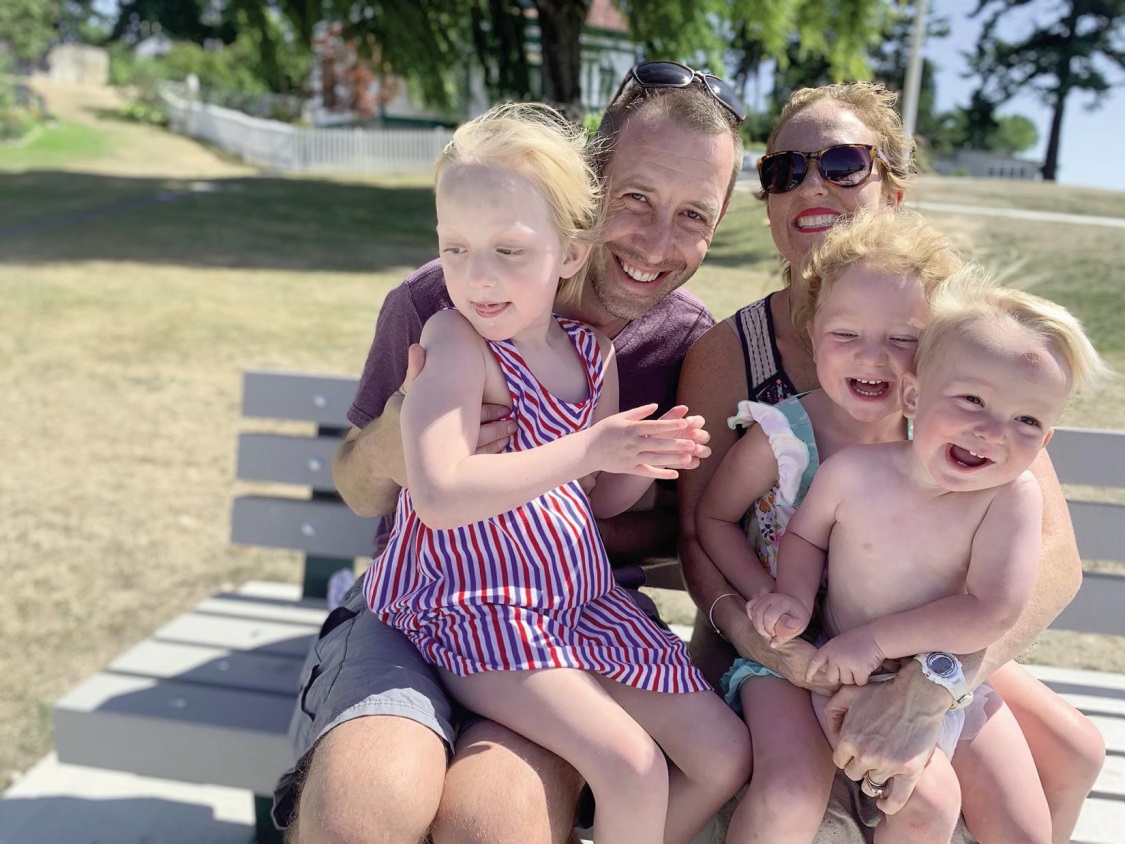
WARM EMBRACES: The Ondrasik family enjoys a summer day; "When she was 18-months old, Gabrielle had whole exome sequencing, to determine if there was a genetic cause. Five months later, we learned that she had a mutation on her CACNA1A gene, which is associated with multiple neurological disorders."
At 10-months old, my daughter Gabrielle was diagnosed with global developmental delays (GDD) after missing key gross motor, fine motor, social, and communication milestones. As a pediatrician, I use these milestones to monitor my patients, and yet it was hard for me to see that Gabrielle, my first child, was not meeting them. After two harrowing seizures (one of which lasted 90 minutes) and an MRI that showed brain abnormalities, Gabrielle was diagnosed with epilepsy, GDD, and autism spectrum disorder. My husband and I might have stopped at these diagnoses, but since he and I are both doctors, we knew there had to be a unifying root cause for these three serious disorders.
"Genetic testing was my family's path to hope. It led us to the CACNA1A Foundation, a collaborative network of families, clinicians, and scientists working to accelerate the understanding, diagnosis, and treatment of CACNA1A-linked diseases."
When she was 18-months old, Gabrielle had whole exome sequencing, a type of genetic testing, to determine if there was a genetic cause. Five months later, we learned that she had a mutation on her CACNA1A gene, which is associated with multiple neurological disorders, including neurodevelopmental differences such as:
developmental delay, cognitive impairment, autism spectrum disorder, speech and language disorder; epilepsy; balance and coordination difficulties; migraines and eye movement disorders.
Despite waiting almost two years, our journey to a genetic diagnosis was much shorter than what most families go through. I had the medical training to ask the right questions and to push for genetic testing. By some miracle, I had worked within the very healthcare system that offered the testing, and at the time, I had one of the only insurance policies that covered the testing.
My fear, and the reality I have been confronted with as a pediatrician, is that other families are not so fortunate. Families often are not offered genetic testing, or only are offered limited genetic testing panels that cannot find most genetic mutations. Some physicians think that a diagnosis of a condition like developmental delay or epilepsy, is the diagnosis rather than a symptom of something deeper. And some think there’s no reason for genetic testing because it won’t change a child’s treatment.